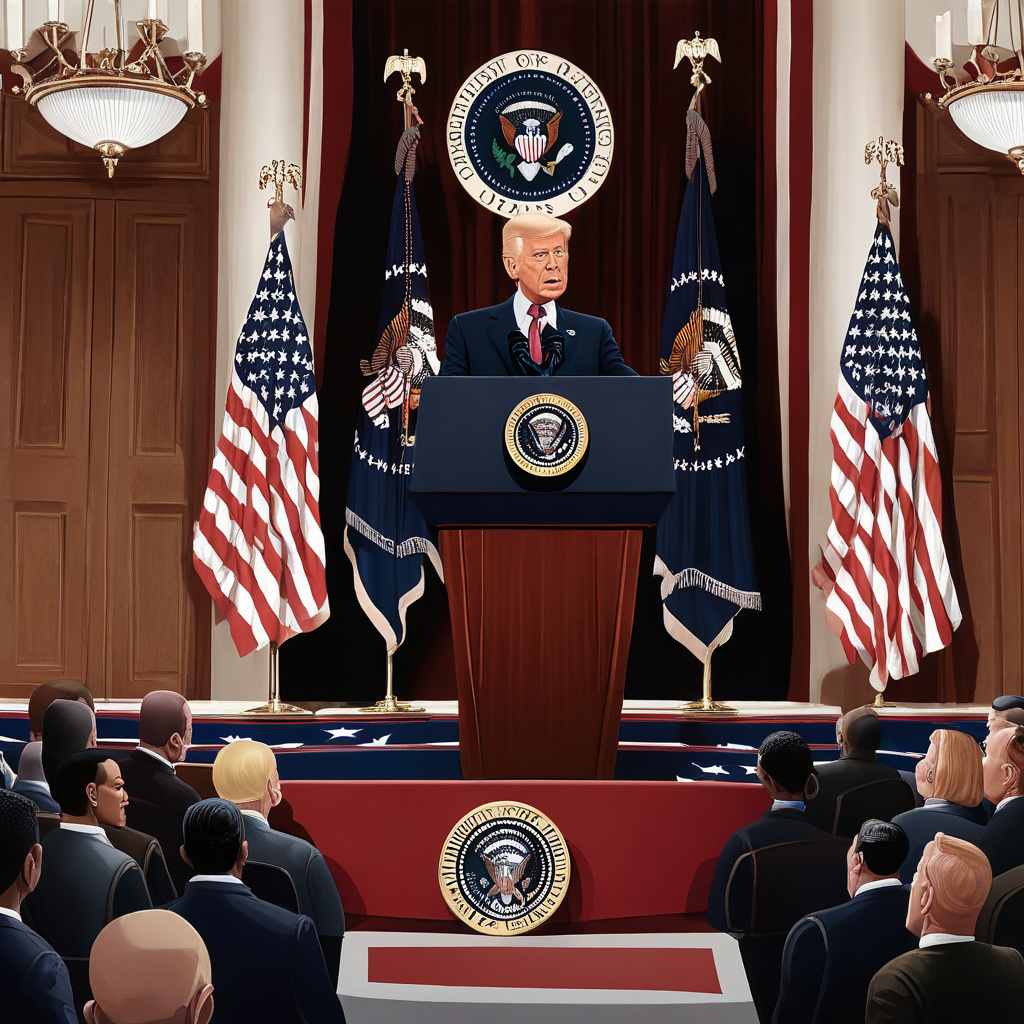In a recent turn of events, President Trump has directed his ire towards tech giant Apple, specifically targeting the production of iPhones. The threat looms large: a hefty 25% tariff on iPhones not manufactured within the U.S. borders. This move is a bold statement from the administration, signaling a strong stance on bolstering domestic manufacturing.
The repercussions of such a tariff could send shockwaves through the tech industry, impacting not only Apple but also its consumers and competitors. A 25% increase in the cost of iPhones would undoubtedly be felt by consumers, potentially leading to a decline in sales and a shift in market dynamics. This move could also prompt other tech companies to reconsider their manufacturing processes and supply chains, preparing for potential similar demands in the future.
Apple, known for its intricate global supply chain, now faces a significant decision. The company must weigh the financial implications of relocating its manufacturing operations to the U.S. against the risk of losing market share due to increased prices. Additionally, the shift to local production could pose logistical challenges and impact the company’s renowned operational efficiency.
This development underscores the broader issue of global trade tensions and the complexities faced by multinational corporations operating in an interconnected world. The tech industry, in particular, relies heavily on international cooperation and trade to thrive. Disruptions to this delicate balance could have far-reaching consequences that extend beyond individual companies.
At the same time, this situation presents an opportunity for reflection and adaptation within the tech industry. Companies may need to reassess their strategies, supply chains, and manufacturing processes to navigate an increasingly uncertain global trade landscape. Embracing flexibility and agility in the face of geopolitical challenges will be crucial for long-term success.
As the situation continues to unfold, all eyes are on Apple and how it will respond to President Trump’s ultimatum. Will the company make the bold move to shift its manufacturing operations to the U.S., or will it explore alternative solutions to mitigate the impact of potential tariffs? The decisions made in the coming days and weeks could have a lasting impact on the tech industry as a whole.
In conclusion, President Trump’s threat of imposing a 25% tariff on iPhones made outside the U.S. has sent shockwaves through the tech industry, prompting Apple to consider its next steps carefully. The outcome of this standoff will not only shape Apple’s future but also serve as a litmus test for how tech companies navigate the complexities of global trade in an increasingly uncertain world. As stakeholders watch this high-stakes drama unfold, the broader implications for the tech industry remain significant and far-reaching.

